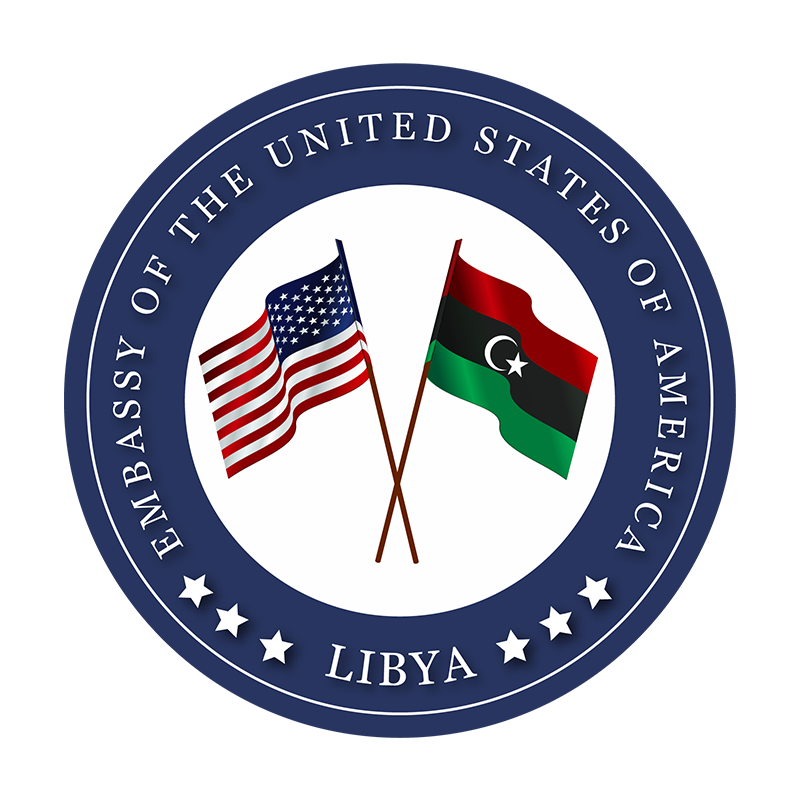The U.S. announced yesterday that it supports the temporary freezing of Libya’s oil revenues until agreement on a revenue management mechanism is reached by conflicting political stakeholders.
The U.S. Embassy statement released yesterday said ‘‘Restoring Libyan oil production is important for the Libyan people and for the global economy. Agreement on a mechanism for transparent management of oil revenues is imperative in order to achieve this, as discussed by Libyan parties in the April 1 meeting of the Berlin Process Economic Working Group.
The U.S. Embassy fully supports the temporary freezing of oil revenues in the National Oil Corporation (NOC) account at the Libyan Foreign Bank (LFB) until there is agreement on a revenue management mechanism.
The Mechanism should incorporate agreement on priority expenditures, transparency measures, and steps to ensure oversight and accountability. The U.S. is prepared to provide technical assistance as requested by the Libyan parties to help with such a mechanism.
Progress on these important issues will contribute to a more stable political environment and help restore momentum toward the parliamentary and presidential elections as demanded by the Libyan people.’’
Analysis
The new position by the U.S. Embassy on the distribution of Libya’s oil revenues comes after a meeting between U.S. Ambassador and Special Advisor on Libya Richard Norland with House of Representatives (HoR) Speaker Ageela Saleh in Cairo on 8 May.
Setback for the Aldabaiba camp
It is a huge setback for the incumbent Caretaker Prime Minister Abd Alhamid Aldabaiba in his efforts to remain in office and a boost for the opposition camp of the HoR selected Prime Minister Fathi Bashagha and his allies HoR Speaker Ageela Saleh and eastern military commander Khalifa Hafter.
U.S. shifting to Bashagha camp?
It is an admission and recognition by the U.S. that Libya’s oil revenues are not distributed fairly. It aligns itself with the eastern camp’s narrative that Tripoli is corrupt and usurps Libya’s oil revenues disproportionately at the expense of the rest of the country.
Sanalla squeezed by Aldabaiba camp
It also confirms a split between the U.S. and National Oil Corporation chairman Mustafa Sanalla, hitherto regarded by his critics to be aligned with U.S. and UK policy. During an interview with a Libya satellite TV channel this week, Norland said he was surprised that Sanalla had transferred oil money to the Aldabaiba government. He said Sanalla had come under immense pressure to do so.
Aldabaiba is reliant on access to money from his ally and Central Bank of Libya (CBL) Governor Saddek El-Kaber. This money originates from oil revenues transferred by the NOC to the CBL from the NOC’s LFB account.
Aldabaiba has been using this money to buy favour with the Libyan public by distributing various grants. The Bashagha camp accuse Aldabaiba of squandering public funds in populist policies designed not for the national interest but to win him the next election.
The Bashagha camp consider the Aldabaiba government a ‘‘Caretaker government’’ with a diminished mandate and legitimacy which should cease all but essential spending until elections are organized. One way to stop it spending is to deny it oil revenues.
Oil and ports shutdown
With Aldabaiba refusing to recognize Bashagha’ s legitimacy as the newly selected PM by parliament (the HoR), so called ‘‘locals’’ have since forcibly shutdown Libya’s oil production in several oilfields and ports in an effort to weaken Aldabaiba and his government in Tripoli. It is widely believed that they were instructed to do so by Hafter/Saleh.
HoR-HSC talks continue
Meanwhile, the HoR and High State Council have met in Cairo under the auspices of the United Nations in an effort to end the political stalemate by organising constitutionally based elections. There has been no positive outcome so far from the first Cairo talks. Another round of Cairo talks will take place today.
Aldabaiba camp’s next move?
It is unclear now what will be the Aldabaiba camp’s next move? Without access to oil money, the Tripoli government will lose influence and lose legitimacy and relevance.
New Bashagha-led government to take constitutional oath on Thursday – LibyaHerald
Legality of HoR confidence vote in Bashagha government questioned – LibyaHerald










